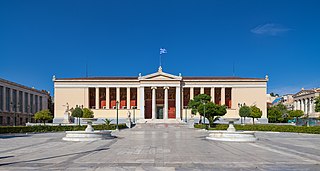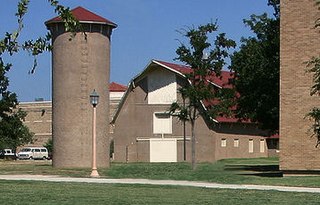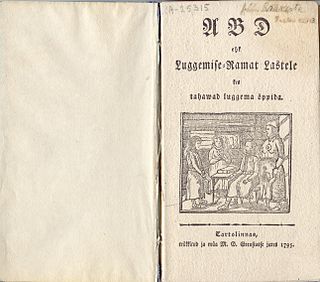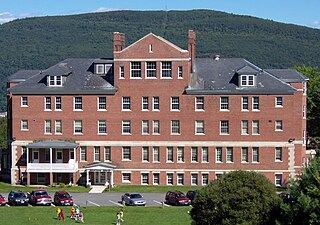The following outline is provided as an overview of and topical guide to education:

Education in Greece is centralized and governed by the Ministry of Education, Religious Affairs, and Sports at all grade levels in elementary, middle school, and high school. The Ministry exercises control over public schools, formulates and implements legislation, administers the budget, coordinates national level university entrance examinations, sets up the national curriculum, appoints public school teaching staff, and coordinates other services.
This is an index of education articles.

Education in Botswana is provided by public schools and private schools. Education in Botswana is governed by the Ministries of Basic Education. and Tertiary, Research Science and Technology Among sub-Saharan African countries, Botswana has one of the highest literacy rates. According to The World Factbook - Central Intelligence Agency as of 2015, 88.5% of the population age 15 and over can read and write in Botswana were respectively literate.

Agricultural education is the systematic and organized teaching, instruction and training available to students, farmers or individuals interested in the science, business and technology of agriculture as well as the management of land, environment and natural resources.

Roland Park Country School (RPCS) is an independent all-girls college preparatory school in Baltimore, Maryland, United States. It serves girls from kindergarten through grade 12. It is located on Roland Avenue in the northern area of Baltimore called Roland Park. It has prominent alumni.
The Master of Education is a master's degree awarded by universities in many countries. This degree in education often includes the following majors: curriculum and instruction, counseling, school psychology, and administration. It is often conferred for educators advancing in their field. Similar degrees include the Master of Arts in Education and the Master of Science in Education.
This glossary of education-related terms is based on how they commonly are used in Wikipedia articles. This article contains terms starting with T – Z. Select a letter from the table of contents to find terms on other articles.

The Waverly School is a nonsectarian, coeducational, college preparatory, progressive day school in Pasadena, California, United States for students in preschool through high school. It has three campuses, and a one-acre organic farm within walking distance. It is an independent school.
The Minnesota Graduation Standards, also known as the Profile of Learning and the Minnesota Academic Standards, created in 1998, were intended to raise standards of education for Minnesota high school students. The Minnesota Graduation Standards were developed to ensure minimum competence in survival skills for all Minnesota graduates from high school. The standards included two parts: the Minnesota Statewide Assessments and the Minnesota Academic Standards.
Quaker Valley High School is a high school located in Leetsdale, Pennsylvania. The school is one of the four National Blue Ribbon Schools that comprise the Quaker Valley School District. The school teaches an average of 645 students in grades 9 through 12, and offers a college-preparatory core curriculum with elective courses.

Loganville High School (LHS) is located in Walton County, Georgia, United States. Loganville is 35 miles (56 km) east of Atlanta and 38 miles (61 km) west of Athens. The school is a part of the Walton County School District.
Bates Technical College is a public technical college in Tacoma, Washington. The college offers Associate of Applied Science degrees, academic certificates, and industry certifications. Bates is accredited by the Northwest Commission on Colleges and Universities.

The history of formal education in Estonia dates back to the 13–14th centuries when the first monastic and cathedral schools were founded. The first primer in the Estonian language was published in 1575. The oldest university is the University of Tartu which was established during the reign of King Gustav II Adolf of Sweden in 1632. The beginnings of the Estonian public education system appeared in the 1680s, largely due to efforts of Bengt Forselius, who also introduced orthographical reforms to written Estonian.

Raleigh Christian Academy (RCA) is a private, Christian, coeducational, primary and secondary day school located in Raleigh, North Carolina, United States. Also referred to as simply Raleigh Christian, the school seeks to educate students in a traditional Christian environment.

The Alameda Science and Technology Institute (ASTI) is an early college high school in Alameda, California, United States.

The Austine School for the Deaf, now closed, in Brattleboro, Vermont, was an independent, coeducational day and residential school for deaf and hard-of-hearing children age four to eighteen from New England and New York.

The Pacific Buddhist Academy is a private, co-educational college preparatory high school in Honolulu, Hawaii.
St. Peter's School is an Independent, Coeducational, Non-Sectarian day school for children ages 3–14. Founded in 1834, it is located in the Society Hill neighborhood of Philadelphia, Pennsylvania.
A high school diploma or high school degree is a diploma awarded upon graduation of high school. A high school diploma is awarded after completion of courses of studies lasting four years, typically from grade 9 to grade 12. It is the school leaving qualification in the United States and Canada.












